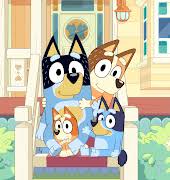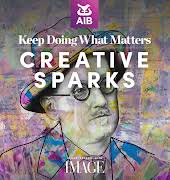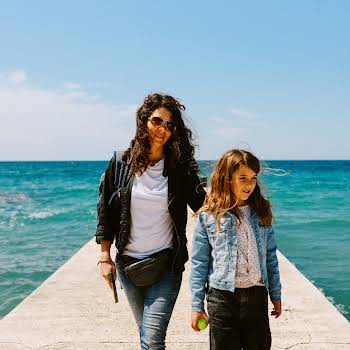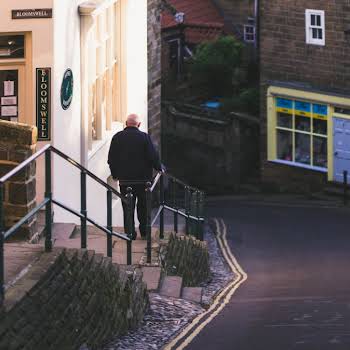
‘I lost the 3 most important people in my life in a matter of years. This is what it taught me about the grieving process’
By IMAGE
24th Jul 2020
24th Jul 2020
Niamh Ennis lost her fiancé, her father and her mother in a matter of years. Here she shares the six things that nobody told her about the grieving process
Six months ahead of our wedding, my partner of nine years felt unwell. Ten days later, he died from pancreatic cancer.
I was utterly blindsided and hadn’t even started to process what this meant for me, when just four months after this, my real-life hero, my protector, my Dad was diagnosed with a serious condition and died just six weeks later. A few short years following his death, my Mum went into hospital, had her first heart attack on the day of my birthday and died 11 short days later.
In a relatively short time frame, I lost what had, for the previous 10 years, become my family unit featuring my fiancé, my Dad and my Mum. Each of them left me suddenly and separately. You would imagine that by the third death I might have become more used to the process of bereavement. I hadn’t. But that’s just another of a long list of things about loss that nobody tells you about.
Each felt totally different and equally harrowing. Grief, separation, abandonment and divorce all result in an intense feeling of loss. And yes, death is undoubtedly more final, but an end is always an end. And it is always painful.
When I was living through my own experiences of loss and grief, I was beyond frustrated at the amount of information, or lack thereof, that was available.

Each book I picked up talked incessantly about the five stages of grief. I was all too familiar with what these were, as I was living them, but what I craved were more personal accounts from anyone who had lived through what I was living through. I couldn’t find anything.
So rather than state the obvious, let me now share here the six things nobody tells you about loss that I believe we should all know.
1. When you lose someone close to you, you don’t just lose them, you lose a big part of your future too. Begin to let go of what you thought and hoped your future was going to look like. Their death means an end to the shared plans you had and this needs to be mourned all on its own. By accepting and letting go of your future plans, you’re actively creating space for a new way of being and doing, when the time feels right. ONLY when the time feels right.
2. Don’t let grief define you. Your close family and friends will want to protect you from this awful pain you are experiencing. Accept that love willingly. But other people will also get tired of your grief. Now, nobody will ever admit to this, but they do. I know. I’ve seen it and I’ve felt it.
Imagine being one of my friends when I faced into my third death in a short period of time. No, me either, but when I noticed, a year later, that I no longer knew how to present myself without leaning on the grief, I could see how I had let it utterly define me. I felt safer, more comfortable, being “the girl who had lost everyone”. So please don’t rush yourself, just continue to go at your own pace and when the time feels absolutely right for you, give yourself permission to become someone other than the bereaved, the one left behind.
3. You won’t ever be the same person again. Give up trying to return to the person you were before they died. This statement whilst true is not without hope. When someone significant leaves your world, that void remains there forever. You cannot fill it and nor should you even try. This does not mean you won’t smile, or feel happiness again, but death changes you and you need to allow it.
4. Grief is a lonely path. Even family members react differently when they share a loss. No two people grieve the same way, or at the same time, which can intensify the sense of isolation you feel. You need to simply focus on your own journey, on your own recovery. Give yourself permission to fall apart before you start to even think about putting yourself back together. Despite what people say, there is NO timeline when it comes to grief. Some people feel stronger after a year, some say it took them several years, everyone is different, so just do you. Whatever that looks like.
5. Accept that you are now part of a club you never wanted to be a member of. When you see someone else starting out on their grief journey, reach out to them. Let them know that you understand and are there just to listen. Don’t be tempted to tell them how to grieve, or even to offer ideas on what they ‘should’ do. Just be there to offer your support. Then, when they eventually do ask, when they need some more help, then you can share what you have learned along your own journey and hopefully make them feel understood and less alone.
6. Finally, there’s a reason you’ve experienced what you’re experiencing. I recognise this might be controversial, but if you can find why you believe the reason that this has happened for you (not to you), then it might assist you in starting to make some sense of your loss. What has this experience taught you? What have you learned about yourself?
It may even help with that perennial question ‘Why me?’. Hint: The answer being ‘why not you?’ That 12 year period of grief for me was unquestionably the lowest point of my life. Outside I looked like I was holding it all together. Inside I was broken. It was only, years later, when I allowed both those sides of me meet up that I truly began to recover. The person writing this piece now is healed, happy and grateful for the wonderful memories of those she lost. She carries them in her heart.
Grief is love with nowhere to go.
Niamh Ennis is Ireland’s leading Transformation Coach working with women who are ready to make significant changes in their lives, www.niamhennis.com.
Her next workshop ‘Time for You to Take a Leap of Faith’ takes place on 29th February, 2020 in The Calm Rooms, Monkstown, Dublin. A limited number of tickets are available now by clicking here http://bit.ly/leapoffaith
Photo: Unsplash
Read more: ‘My brother died after taking a synthetic drug at a house party. Now I’m determined to turn my grief into something positive’
Read more: Dealing with grief: ‘One day he went to work and he never came home’
Read more: 6 books, plays and podcasts to help you deal with grief























